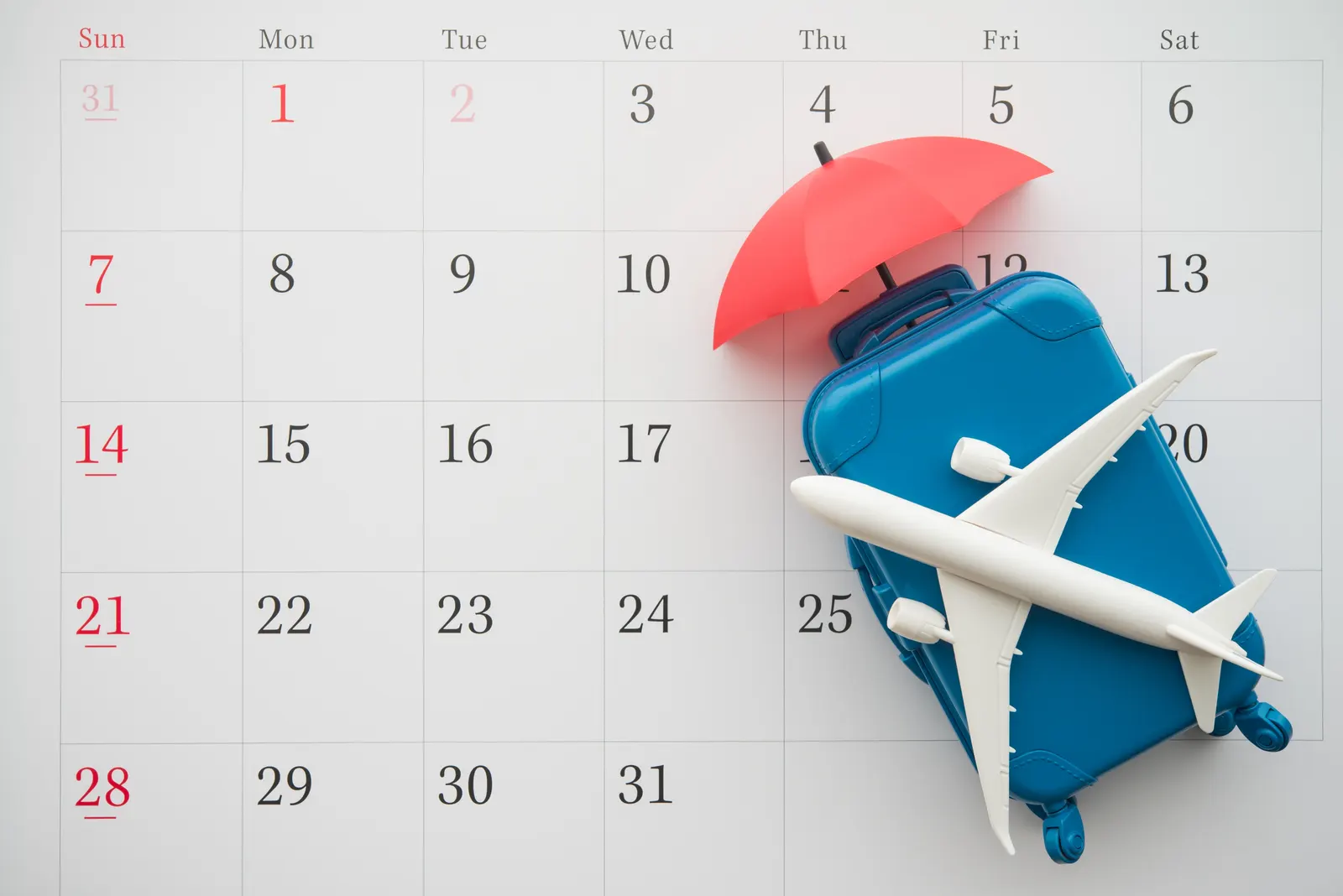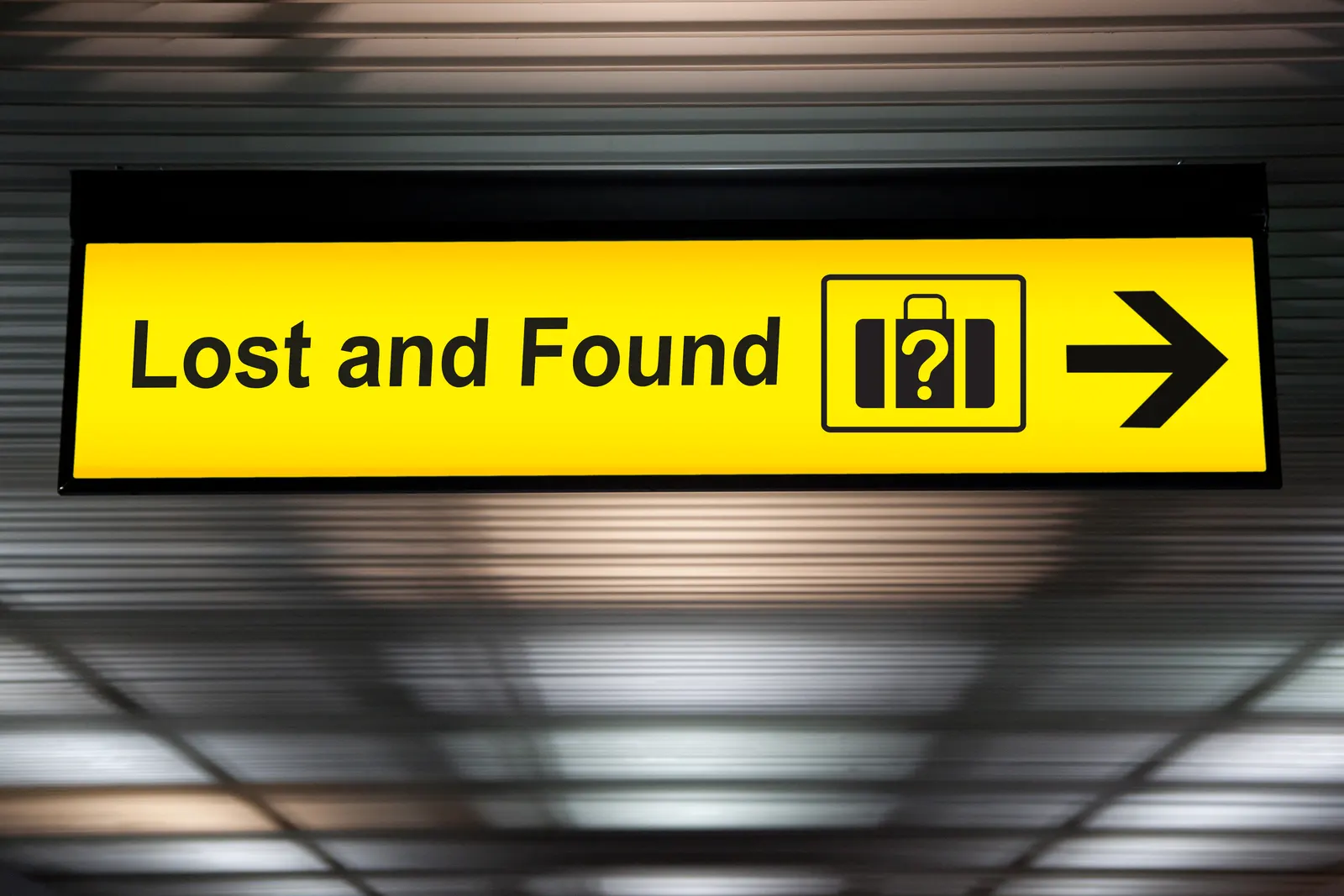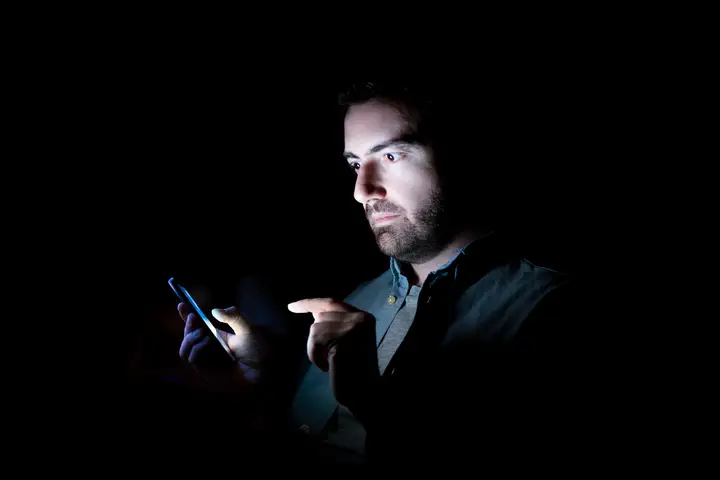For most professionals, the idea of a holiday is a sacred promise—a shimmering oasis on the horizon of a demanding work schedule. It represents a time to disconnect, recharge, and finally switch off.
But what if that promise consistently falls flat? What if the planning feels more demanding than your actual job, and "relaxing" feels like an impossible task?
This experience is what we call the ADHD Holiday Paradox: the very escape designed to relieve the pressure of a high-functioning brain becomes a showcase for its underlying struggles. It's not a personal failing; it is a classic sign of how the executive function challenges of Adult ADHD manifest when the structured guardrails of a work routine are removed.
In this guide, we will explore the three stages of the holiday journey through this lens. For many professionals who have compensated for their ADHD traits for years, seeing these patterns in a non-work context is the final piece of the puzzle that leads them to seek clarity.
Part 1: The Planning Phase - The Mountain of 'Perfect'
For a neurotypical brain, planning a holiday is a linear process: research, decide, book. For the ADHD brain, it’s a sprawling, non-linear adventure riddled with dopamine-seeking rabbit holes, analysis paralysis, and the ever-present risk of the "ADHD tax."

The Hyperfocus Rabbit Hole: Researching More Than You Relax
The journey begins with what feels like productive excitement. You open a browser to look for a hotel in Italy. Six hours later, you have 27 open tabs, you've memorised the entire history of the Amalfi Coast, watched three vlogs on the best gelato in Sorrento, and compared the thread count of the bedsheets in a dozen boutique hotels. You have a mountain of information, but you are no closer to making a decision. In fact, you feel more overwhelmed than when you started.
This is not poor discipline; it's hyperfocus driven by a dopamine-seeking brain.
- Dopamine and Novelty: The ADHD brain has a dysregulated dopamine system, the neurotransmitter responsible for motivation and reward. The act of researching—discovering new places, new possibilities, and new information—provides a steady stream of novelty, which in turn delivers small, satisfying hits of dopamine.
- Analysis Paralysis: The executive function challenge of task initiation kicks in. The exciting research phase is over, and now the brain is faced with the less stimulating, more demanding task of making a final decision, weighing variables, and committing. This requires significant executive function resources, which are already in short supply. To avoid this demanding task, the brain seeks another hit of dopamine by opening yet another tab to research "just one more option."
For many professionals, this research phase can last for weeks or even months. It consumes evenings and weekends, pushing aside important life-admin tasks family commitments, and even work deadlines. The irony is profound: the time spent in the hyperfocus-driven planning spiral can end up being longer than the holiday itself.

The 'ADHD Tax' on Bookings: Procrastination and Costly Errors
Once the 'perfect' destination is theoretically chosen, the next hurdle appears: the booking process. This is where the executive function challenges of ADHD can lead to tangible, often expensive, consequences known as the "ADHD tax."
The process looks something like this:
- Hesitation and Procrastination: The fear of making a mistake—booking the wrong thing, missing a better deal, choosing a subpar hotel—can be overwhelming. This is often linked to Rejection Sensitive Dysphoria (RSD), a common trait in ADHD where the fear of perceived failure or criticism is intensely painful. To avoid the potential "failure" of booking a less-than-perfect holiday, the individual procrastinates on the final step.
- The Price Creep: While the decision is delayed, flight prices go up, the ideal hotel gets booked, and what was once an affordable trip becomes significantly more expensive. This extra cost, born from procrastination, is a classic example of the ADHD tax.
- The Final Rush and Critical Errors: As the window of opportunity closes, a sense of urgency and panic sets in. The booking is finally made in a rush, a state where the ADHD brain's vulnerability to detail-oriented errors is at its peak. This can lead to devastatingly simple mistakes:
- Booking flights for the wrong month (e.g., July instead of June).
- Booking a hotel for the wrong year.
- Misspelling a name, leading to issues at the airport.
- Forgetting to book airport transfers or rental cars.
These aren't signs of carelessness; they are the direct result of an executive function system pushed to its limit.

The Last-Minute Overcorrection: The 'Freestyle' Holiday
For some professionals with ADHD, the sheer exhaustion of the planning phase leads to a complete overcorrection: the last-minute, "freestyle" holiday. To avoid the analysis paralysis and booking anxiety, they simply don't plan at all.
Their colleagues might see this as wonderfully spontaneous, but it's often a coping mechanism. They wait until the pressure is overwhelming and then book whatever is available, leaving on a few days' notice. This strategy uses urgency to bypass the executive function demands of planning. While it can sometimes lead to incredible adventures, it can also result in paying premium prices, staying in less-than-ideal locations, and adding a different kind of stress to the holiday itself.

Part 2: The Holiday Itself - The Unrelenting Engine
You’ve finally made it. You're sitting by a pool, the sun is warm, and a gentle breeze is blowing. This is the moment you've been working towards. For a neurotypical individual, this is the peak of relaxation. For the professional with undiagnosed ADHD, this is often the moment the real struggle begins.

The Myth of "Just Relaxing"
The instruction to "just sit back and relax" is often physically and mentally impossible for the ADHD brain. It is chronically under-stimulated and craves engagement. Lying on a sunbed with nothing to do can feel less like peace and more like torture.
This internal restlessness manifests in several ways:
- The Need for Constant Activity: The person may feel compelled to fill every moment. They'll organise non-stop activities, go for a run when everyone else is resting, explore every single street, or initiate complex games. To others, they may look energetic; internally, they are simply trying to generate enough stimulation to feel calm.
- Retreating into the Phone: When the external environment is not stimulating enough, the mobile phone becomes an escape. Despite being in a beautiful location, the individual might spend hours scrolling through social media, reading news, or playing games. This isn't an act of anti-social behaviour; it's a search for the dopamine and stimulation that the tranquil environment lacks. For some, the quiet time on holiday can lead to a pattern of 'doomscrolling' or a persistent fear of world events. This is often a subconscious strategy by the under-stimulated ADHD brain to generate a high-intensity focus.
- Internal Monologue Overdrive: Even if they are sitting still physically, their mind is running at 100 miles per hour, planning the next activity, worrying about a problem back at work, or replaying past conversations. The brain doesn't have an "off" switch.

The Lure of Risky Business
The ADHD brain's combination of impulsivity and dopamine-seeking can make holidays a time of increased risk. The search for novelty and intense experience can lead to activities that are poorly thought out.
This can range from the minor to the serious:
- Forgetting Practicalities: Impulsively deciding to go on a long hike without water, forgetting to apply sunscreen leading to severe sunburn, or diving into a pool without checking its depth.
- Physical Injuries: A common holiday experience for those with ADHD is coming home with a collection of unexplained bruises, a sprained ankle from a "fun" new sport they tried without instruction, or other minor injuries born from a lack of foresight.
- Financial Impulsivity: Making large, unplanned purchases or booking expensive, non-refundable excursions on a whim.

The Rigidity of Routine
While some with ADHD are impulsive, others swing to the opposite extreme: a rigid adherence to routine. For them, routine is the external structure that helps them manage their internal chaos. When on holiday, this can cause friction.
They might insist on eating at the same time every day, following a specific morning ritual, or needing to visit sites in a pre-planned order. To family members or partners who view holidays as a time for spontaneity, this can be confusing and frustrating. They don't understand that for the person with ADHD, this routine isn't about being controlling; it's a coping mechanism to prevent feeling overwhelmed. For an individual with ADHD, perfectionism is often a compensatory strategy—a way of imposing rigid order on the external chaos of a holiday to manage internal feelings of being overwhelmed.

The Invisible Load: Delegation and Relationship Strain
To mitigate the risks of making booking errors or losing important documents, many undiagnosed professionals with ADHD unconsciously develop a powerful coping mechanism: delegation. They hand off all the "admin" of the holiday—booking the flights, holding the passports, managing the itinerary—to their partner.
While this can be an effective strategy, it creates an invisible burden. The neurotypical partner can become overwhelmed and resentful, wondering, "Why do I have to do everything? Why can't this highly intelligent, successful person handle booking a simple flight?" They don't see the intense internal battle and executive dysfunction that makes these tasks so monumental for the ADHD brain. This misunderstanding can become a significant source of relationship strain, turning what should be a shared, exciting experience into a source of conflict
What was meant to be a relaxing getaway quickly turns into a series of problems to solve, negotiations to be had, and internal battles to be fought. The holiday becomes less about enjoyment and more about survival.

Interactive Tool: The Holiday Pattern Analyser
Part 3: The Return - The Re-Entry Crash
The challenges don't end when the holiday does. For many professionals with ADHD, the return home presents its own set of hurdles, turning the final leg of the journey into a uniquely stressful experience.
The Post-Holiday Blues (Amplified)
Most people experience a small dip in mood after a holiday, but for the ADHD brain, it can be a significant crash. The brain, which was either over-stimulated by constant activity or under-stimulated and restless during the holiday, now has to transition back to the predictable, often mundane, structure of daily life.
This can lead to:
- Intense Boredom and Restlessness: The return to routine can feel stifling, triggering a powerful craving for novelty and excitement.
- Executive Function Slump: The "scaffolding" of the work routine that helps manage ADHD symptoms has been removed and must be rebuilt. The first few days or weeks back at work can feel like wading through mud, with task initiation and focus being particularly difficult.
- Procrastination on "Return Admin": The task of unpacking, doing laundry, and sorting through mail can feel monumental and may be put off for weeks, creating a lingering sense of disorganisation and stress in the home environment.

The Trail of Lost Property
The end of a holiday often involves a frantic last-minute check of the hotel room, but for the person with ADHD, object permanence is a constant battle. It's common to leave a trail of belongings behind: a phone charger plugged into the wall, a favourite jumper left in a drawer, or sunglasses left on a restaurant table.
Usually, these are minor annoyances. But on the return journey, the stakes are higher. The combination of travel fatigue, distraction, and a chaotic airport environment creates the perfect conditions for a critical error. Leaving a laptop, wallet, or—in the most severe cases—a passport in the seat-back pocket of an airplane is a uniquely ADHD travel experience. This leads to hours of panicked stress at the airport, trying to liaise with airline staff to retrieve the item, or the logistical nightmare of having to return days later to collect it.

The Lost and Found Fiasco: The Car Park Challenge
Perhaps no single event better illustrates the post-holiday ADHD experience than the search for the car in the airport car park.
After a long flight, navigating baggage claim, and managing fatigue, the executive function system is at its lowest ebb. The working memory required to recall where the car was parked two weeks ago has vanished. This can lead to a long, frustrating search, sometimes lasting for an hour or more, pressing the car key fob and listening for a faint beep in a sea of identical vehicles. It's a perfect storm of executive function failure—a small but deeply frustrating final "ADHD tax" on a holiday that was supposed to be relaxing.
Many with ADHD intuitively develop coping strategies for this, such as the non-negotiable habit of taking a picture of the car and the bay number (e.g., "Level 3, Bay G12") the moment they park. The fact that such a rigid system is necessary highlights the underlying challenge.

Why This Matters: It’s Not You, It’s Your Brain
If these patterns—the chaotic planning, the restless holiday, the disorienting return—feel deeply familiar, it is crucial to understand that you are not "bad at holidays." You are not ungrateful, difficult, or incapable of relaxing.
You are a professional who has likely spent a lifetime developing sophisticated compensation strategies to excel in a structured work environment. When that structure is removed, the underlying neurology of ADHD becomes more apparent. The challenges you face with holidays are not a reflection of your character; they are a reflection of your brain's unique wiring.
Recognising these patterns is the first and most critical step. It shifts the narrative from self-blame ("Why can't I just switch off?") to curiosity and understanding ("How is my brain working differently?").

Building a Burnout-Resistant Career and Life
The same executive function challenges that turn a holiday into an ordeal are often the same ones that lead to professional burnout. The constant over-exertion, the masking of symptoms, and the struggle to manage tasks that others find simple can be exhausting.
A comprehensive ADHD assessment is not just about getting a diagnosis; it's about receiving a roadmap to your own brain. It provides the clarity and understanding needed to develop personalised strategies that work with your neurology, not against it. With the right support, you can learn to manage your focus, energy, and impulsivity, allowing you to build a sustainable career and, yes, finally take the relaxing holiday you deserve.
If you are a professional living in London, UK who sees yourself in this article, it may be time to get the answers you need.
References
ADHD and Career Burnout: The Hidden Link
ADHD Specialist - Adult ADHD Symptoms & Diagnosis London & UK
ADHD in Executives: Build Performance and Resilience
Finances and ADHD A Difficult Relationship | Not Impossible
The ADHD-Sleep-Burnout Triangle: Understanding the Cycle
Mastering Time Management with ADHD (Tips & Techniques)
ADHD & Phone Addiction: 11 Strategies to Reclaim Your Focus
Private ADHD Assessment London | Adults & Teens (16+) | UK
ADHD Overspending and Impulsivity: Tips for Better Finances
Can Adult ADHD and Perfectionism Coincide | ADHD Specialist
ADHD Pressure Box & Drama Triangle Evolved | ADHD Specialist
ADHD Specialist - Adult ADHD Depression & Treatment London & UK
ADHD and accidents over the life span – A systematic review - ScienceDirect
Disclaimer: The information is not intended nor implied to be a substitute for professional medical advice, diagnosis or treatment. All content, and information, contained in this article is for general information purposes only and does not replace a consultation with your own doctor/health professional. Information about mental health topics and treatments can change rapidly and we cannot guarantee the content's currentness. For the most up-to-date information, please consult your doctor or qualified healthcare professional. For more information, you can check the Royal College of Psychiatrists (rcpsych.ac.uk)
Pictures source Pexels.com Shutterstock.com Free Stock Photos, Royalty Free Stock Images & Copyright Free Pictures · Pexels ; Stock Images, Photos, Vectors, Video, and Music | Shutterstock
.svg)
.svg)





.svg)






